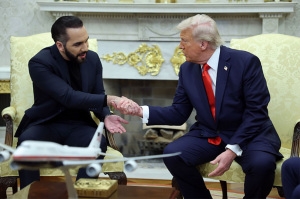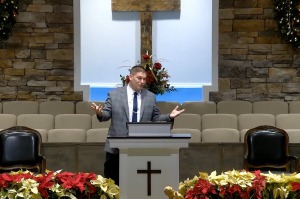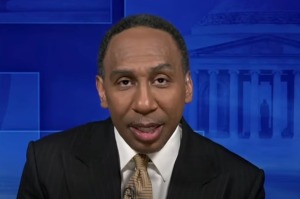Study: Many Scientists Say Science, Religion Do Not Conflict
A new study by researchers at Rice University reveals only a small percentage of scientists today see religion and science in constant conflict with one another.
Researchers discovered that a majority of scientists see both religion and science as "valid avenues of knowledge" that can bring broader understanding to important questions.
Sociologist Elaine Howard Ecklund, lead author for the new study released this week, says in debates about the origins of Earth and how life developed on it, “many see religion and science as being at odds and even in irreconcilable conflict.”
While some research experts have long claimed that science is incompatible with a belief in God, this new research shows that scientists generally have a particular kind of religion in mind (and religious people and institutions) when they say that religion and science are in conflict.
Ecklund and her team interviewed a scientifically selected sample of 275 participants, pulled from a survey of 2,198 tenured and tenure-track group of faculty in the natural and social sciences at 21 elite research universities across the country.
The fresh look into the issue reveals only 15 percent of those surveyed view religion and science as always in conflict. Another 15 percent said the two are never in conflict, and 70 percent believe religion and science are only sometimes in conflict.
About half of those interviewed said they identified with a particular religion.
Those scientists who take dim views of religions, and particularly do not agree with evangelical Christianity, were more likely to say it conflicts with science.
The 85 percent who believe science and religion are not in conflict affirmed “science comes from God, and that God created it,” or that “science and religion are completely separate ways of viewing reality.”
"The kind of narrow research available on religion and science seems to ask if they are in conflict or not, when it should really ask the conditions under which they are in conflict," Ecklund said.
"Our research has found that even within the same person, there can be different views. It's very important to dispel the myth that people believe that religion and science either do or don't conflict. Our study found that many people have much more nuanced views."
Researchers said these “nuanced views” are finding their way into classrooms around the country.
“One biologist, an atheist not part of any religious tradition, admitted that she makes a sincere effort to present science such that religious students do not need to compromise their own selves. Although she is not reconsidering her personal views on religion, she seeks out resources to keep her religious students engaged with science,” according to those interviewed for the study.
The story of Adam and Eve is a primary belief for many Christians. So is the story of creation taught in the book of Genesis. Much emphasis has been placed on only a few theories that argue against these biblical references.
Albert Mohler, president of The Southern Baptist Theological Seminary, one of the largest seminaries in the world, says you're either going to accept or not accept that the Bible gives us the authoritative word about who we are as human beings, what God did in creating the world and what God did for us in Christ.
“If we're going to allow modern science to tell us what we can and cannot theologically affirm, then it doesn't end with a discussion of whether or not there's an historical Adam,” Mohler said in a recent interview with NPR.
“It continues throughout the entirety of the body of Christian truth. And that is a disastrous route.”
He argued that if the Bible is not the authoritative source for that and instead has to be corrected by modern science, then the "Bible is just there for our manipulation, and quite frankly, the Gospel is there for constant renegotiation."
“It ends up being another Gospel, the very thing the apostle Paul warned against.”
Ecklund summarized her findings in "Scientists Negotiate Boundaries Between Religion and Science," which can be found in the September issue of the Journal for the Scientific Study of Religion.
Her co-authors were sociologists Jerry Park of Baylor University and Katherine Sorrell, a former post baccalaureate fellow at Rice and current Ph.D. student at the University of Notre Dame.
The team believes the study's findings will go far in improving the public's perception of science.
"I think it would be helpful for the public to see what scientists are actually saying about these topics, rather than just believe stereotypes," Ecklund said. "It would definitely benefit public dialogue about the relationship between science and religion."
To find out more information about the study entitled, "Scientists Negotiate Boundaries Between Religion and Science," visit http://onlinelibrary.wiley.com/doi/10.1111/j.1468-5906.2011.01586.x/full.
To view Rice University's study entitled, "More than 20 percent of atheist scientists are spiritual," visit http://www.media.rice.edu/media/NewsBot.asp?MODE=VIEW&ID=15739&SnID=1558900405.





























